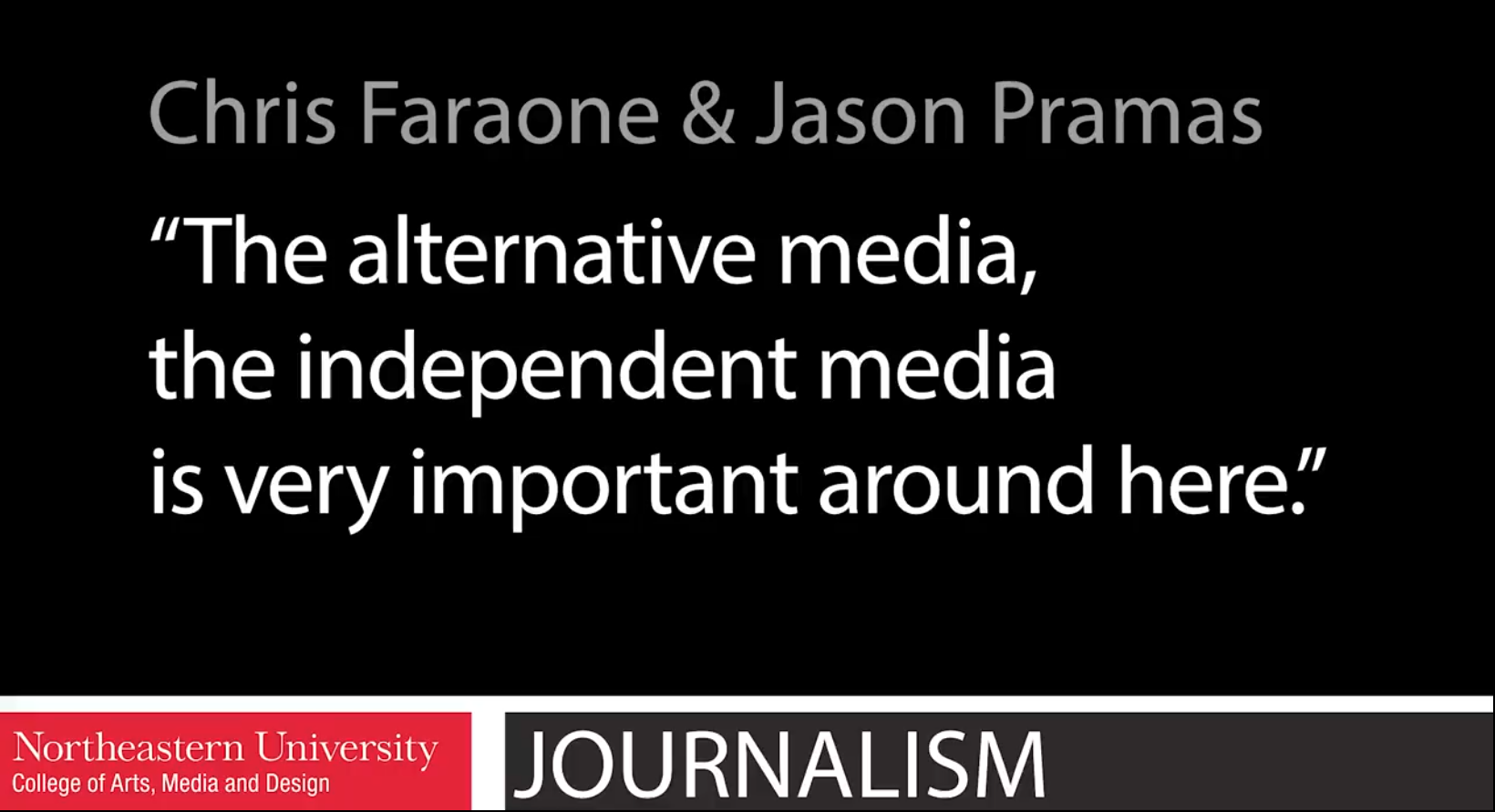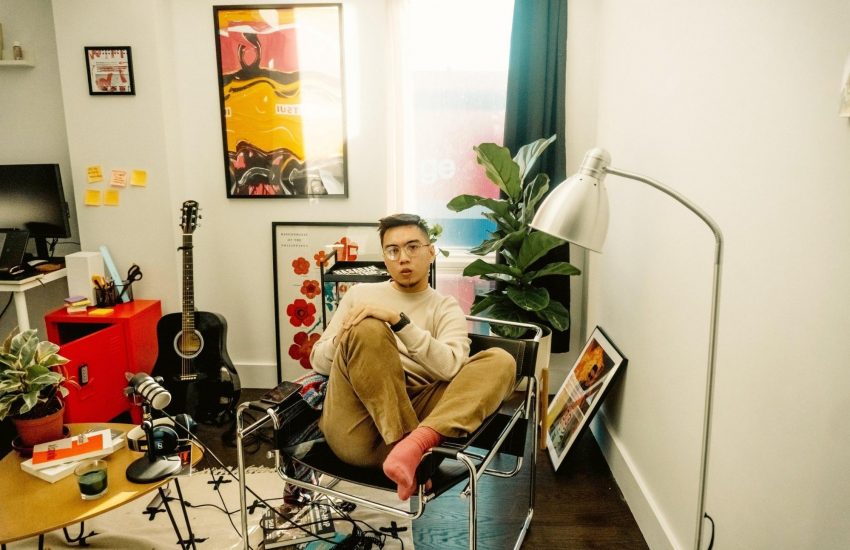“The alternative media, the independent media is very important around here.”
Despite the challenges facing journalism, the free weekly alternative newspaper DigBoston and its editors remain devoted to providing local coverage and perspectives that are not often heard – even if everyone else thinks they’re crazy for it.
Chris Faraone and Jason Pramas, the editors and associate publishers of DigBoston, spoke at “Pizza, Press & Politics,” a weekly speaker series sponsored by Northeastern University’s Journalism School. The journalists talked to students about what it’s like running the Dig and the importance of the alternative press.
The two reporters made up a bit of an odd couple. Pramas has long hair and glasses and wore a navy sweater. He was kicked out of several colleges for his social activism in the 1980s and 1990s. Faraone has a shaved head, with tattoos peeking out from his shirt and tie. He’s all intensity and f-bombs.
They were frank with students about what it takes to be an alternative journalist in 2020.
“If you’re going to do this,” said Pramas, “you’ve got to do it with all your heart and soul… You’ve got to put pedal to metal. You’ve got to be willing to work seven days a week. That means 80-hour weeks and never having an actual vacation.”
However, they also talked about how fulfilling their work is. In 2017, Faraone and Pramas took over the Dig and revamped it. They found a sense of purpose in keeping alternative journalism alive, since the city’s once thriving alternative paper, the Boston Phoenix, had shut down the same year.
Their goal was to create a news incubator of sorts. News outlets were going under and their friends were working on projects with nowhere to put them. The Dig became a space that fostered young journalists and allowed for long-form and investigative pieces to be published, they said.
“We don’t even really believe in competition at this point,” said Pramas. “Our competitors are collapsing… It becomes about democracy. We’re not going to be able to preserve even the semblance of a democracy if we can’t preserve a free media.”
The two also touched on their grievances with mainstream media. “Who’s job is it at the [Boston] Globe to cover poor people?” asked Faraone.
He later elaborated on the holes in mainstream coverage and the dangers of following trends, saying, “So long as we don’t have anyone covering city council I don’t give a shit about fake news. We’re talking about towns like Somerville who don’t have a single full-time paid reporter.”
With a rotating cast of freelance journalists and a focus on covering what’s not being covered, DigBoston is anything but ordinary. That, however, is exactly what makes it and Faraone and Pramas’ perspective so vital.
Editor’s note: This story has been updated to reflect the correct year Faraone and Pramas took over the site, which was in 2017. A previous version said 2013.





